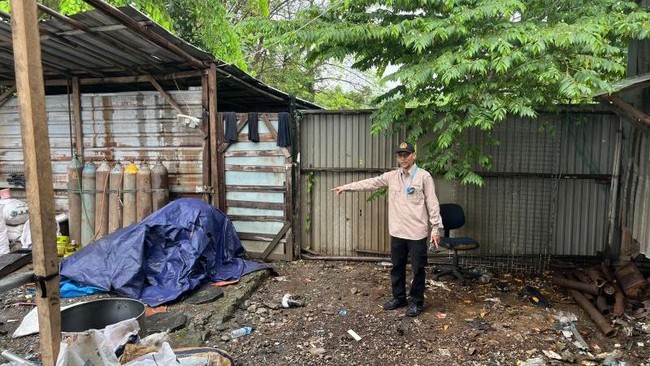Cesium-137 contaminated shrimps due to radioactive leak from waste disposal in Java
Customs checks in the United States of imported shrimps from Indonesia set off alarm bells. The Cikande area in Serang district has been declared a special incident area. According to a preliminary investigation, the contamination appears to come from uncontrolled processing of metallurgical industry waste. Cesium-137 poses long-term health risks.
Jakarta (AsiaNews) – Indonesian authorities have designated Cikande, a town in Serang district, Banten province, about 70 kilometres from Jakarta, as an area exposed to Cesium-137 radionuclide radiation.
The decision follows an investigation by a special task force that found that shrimp exports had been contaminated with radioactive material.
“Today, Tuesday 30 September, we declare Cikande as a special incident area for radionuclide CS-137 radiation. The special incident status applies only to Cikande, nowhere else,” said Coordinating Minister for Food Affairs Zulkifli Hasan during a meeting in Jakarta.
The government has also taken preventive measures, including blocking contaminated containers at the port of Tanjung Priok and removing the source of radiation.
The authorities have questioned and examined the PT PMT shrimp processing plant in Cikande, identified as the source of the contamination, along with 15 scrap metal traders.
Previously, the Nuclear Energy Regulatory Agency (Bapeten) had detected several new sites contaminated by radioactive substances in Serang district.
The findings follow earlier reports of Cesium-137 contamination in the Modern Cikande Industrial Estate area, which may be linked to the disposal of metallurgical industry waste.
The exposure was first identified after the United States rejected shipments of frozen shrimp from Indonesia at several major ports, including Los Angeles, Houston, Savannah, and Miami.
Inspections conducted in August 2025 by the Food and Drug Administration (FDA) and US Customs prompted the Indonesian government to act quickly.
A joint nationwide investigation was launched, leading authorities to the Cikande Industrial Estate. At a local scrap metal collection site, investigators found materials that tested positive for contamination.
Cesium-137 is a man-made substance used in industry, such as in density and flow measurement devices.
It is classified as a source of ionising radiation, which poses long-term health risks. It is not found naturally in the environment, so the contamination comes from industrial equipment or waste.
Zulkarnain, director of the Radiation Facilities and Radioactive Substances Inspection at Bapeten, reported that some of the hazardous material had been unknowingly used by residents.
Traces of radioactive waste were found mixed in the foundations of some buildings.
A joint task force conducted a cleanup within a 20-metre radius of the discovery site. Samples collected from the area confirmed additional hotspots with high radiation levels.
To prevent wider risks, the authorities have established a safety perimeter around the contaminated area.
The discoveries have raised further suspicions that the radioactive leak originates from metal smelting activities in the area.
Indonesia imports scrap metal for both industrial use (brass, aluminium, steel, etc.) and for recycling.
Some ports are designated to receive these cargoes, but often there are data shortages, inspection problems, or falsifications.
15/10/2025 15:40
16/08/2024 14:11
12/01/2022 11:23







.png)










